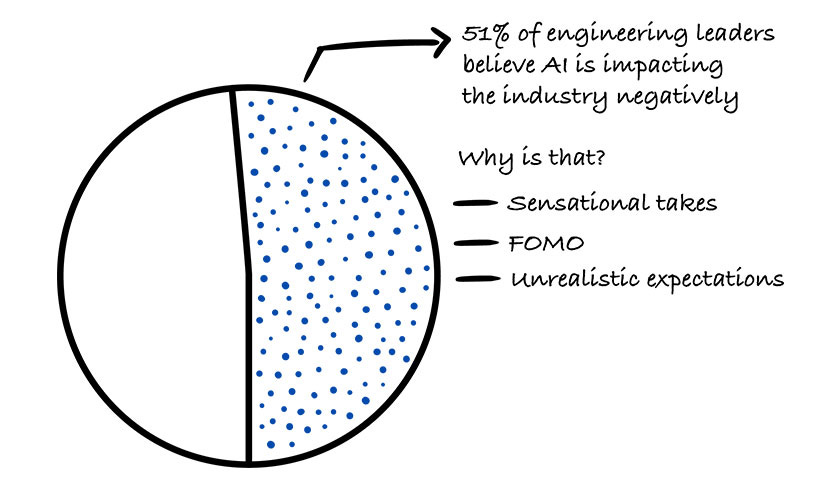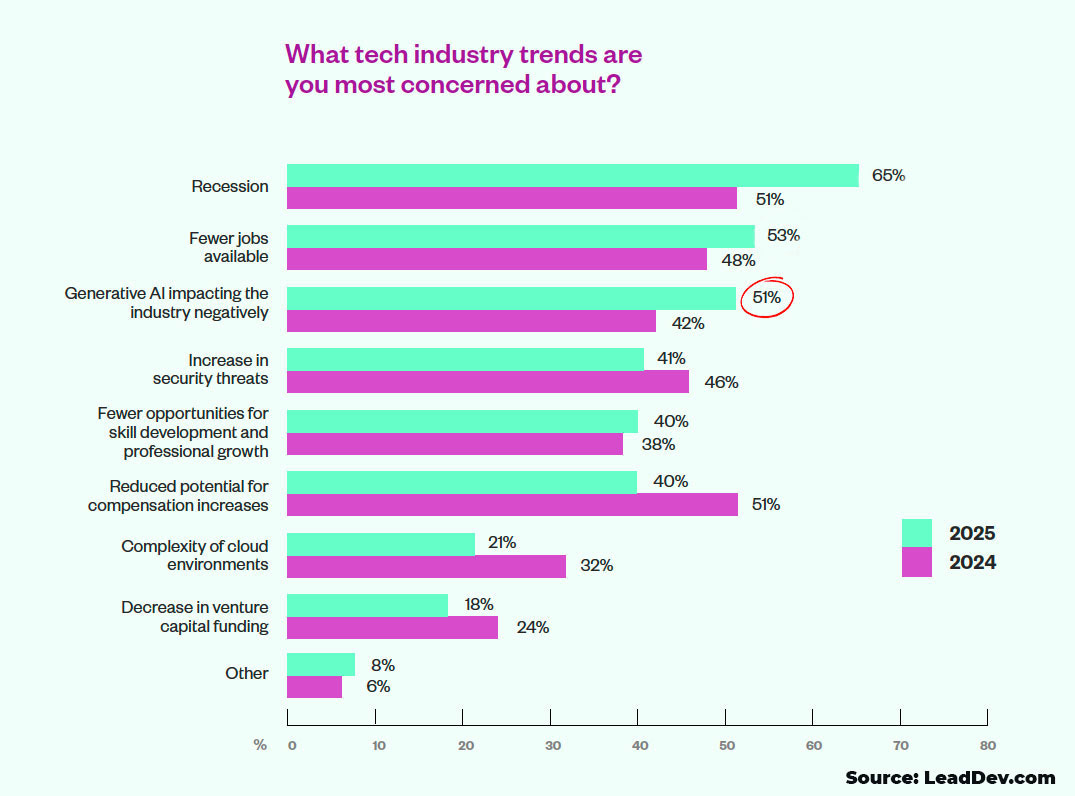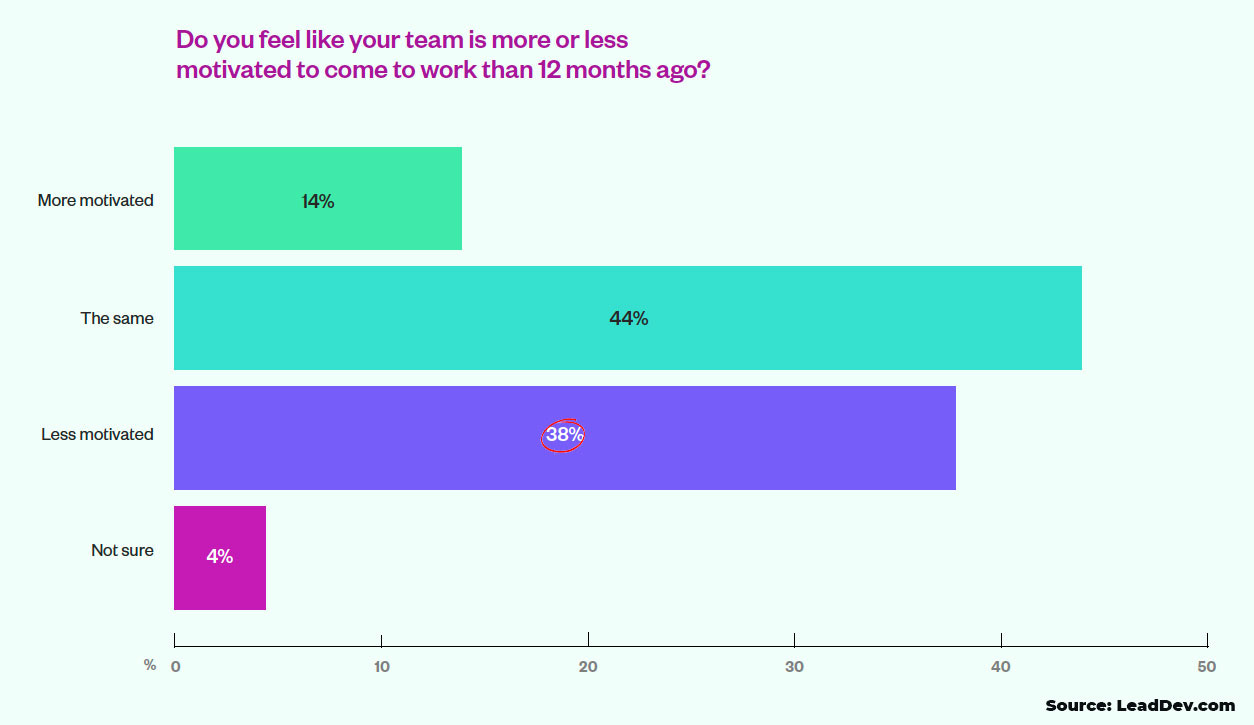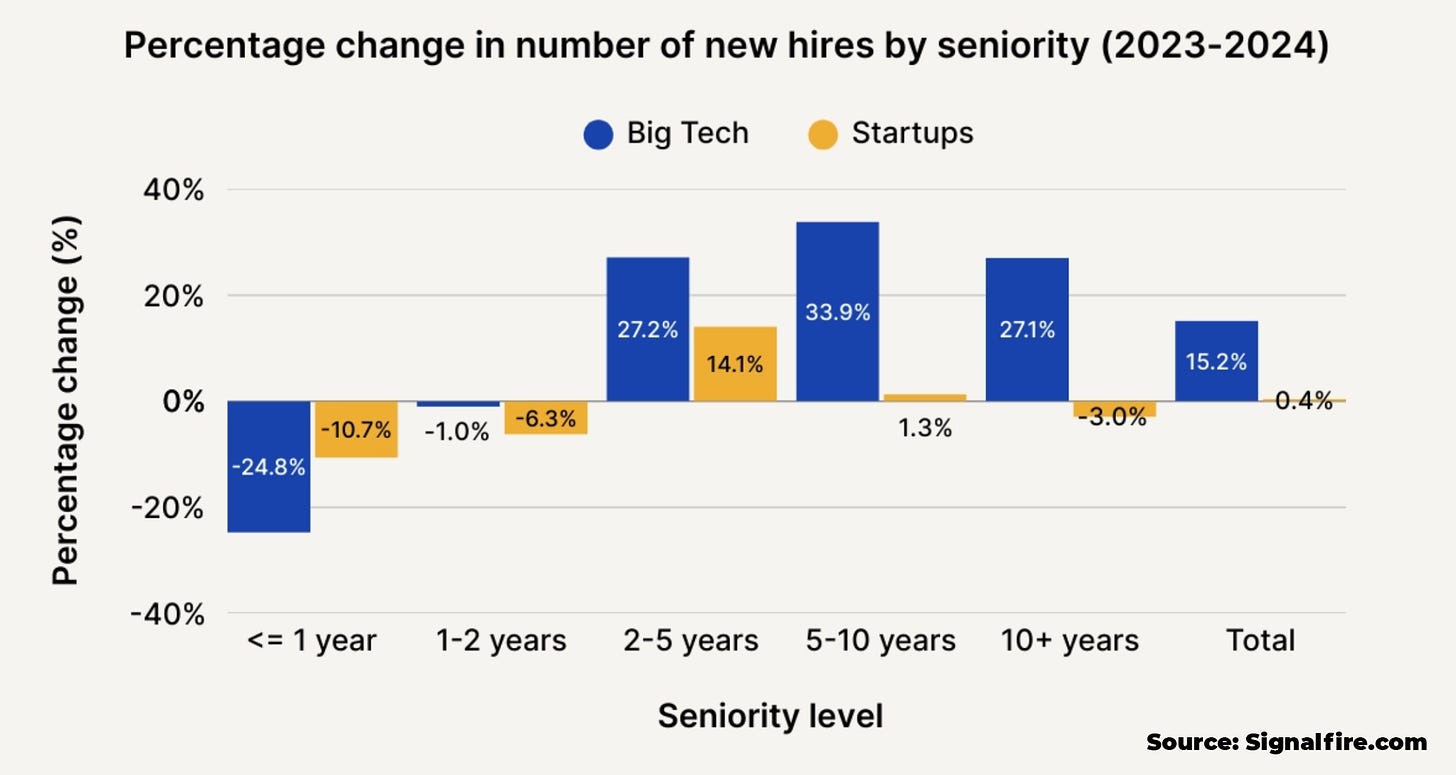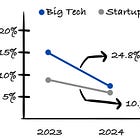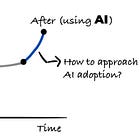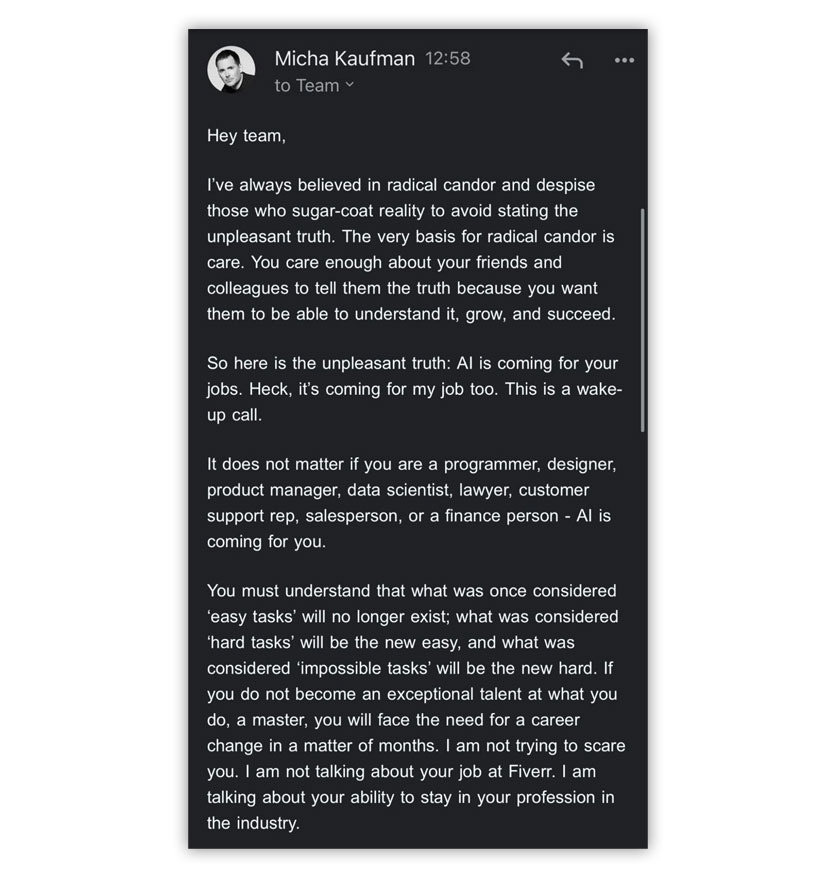Why 51% of Engineering Leaders Believe AI Is Impacting the Industry Negatively
Many companies are experiencing FOMO when it comes to AI and it has a negative effect on engineering leaders. This is why!
This week’s newsletter is sponsored by Cerbos.
Securing AI agents and non-human identities
NHIs surged with the rise of AI agents, microservices, and distributed cloud systems. This ebook gives you a practical roadmap to secure NHIs in your architecture, with Zero Trust principles at the core:
Real-world examples of AI and NHI specific security threats, illustrated by incidents from Okta, GitHub and Microsoft + OWASP research
12 security principles with 35 practical steps for risk-informed NHI governance
A vendor landscape and evaluation checklist to help you build out your NHI security infrastructure
Thanks to Cerbos for sponsoring this newsletter, let’s get back to this week’s thought!
Intro
In the recent article The State of Engineering Leadership in 2025, I closely analyzed the current state of Engineering Leadership which showed to have many interesting insights.
Especially, an insight into the increase of engineering leaders negatively perceiving AI, which got me thinking about what the reason for this might be.
In this article, I am sharing my view and my opinion on what is happening and what’s causing the negative trend.
Let’s get to 2 specific data points which we’ll be discussing in this article
Data point 1: 51% of engineering leaders perceive AI in a negative way
Based on the recent report done by LeadDev, which I’ve closely looked at, 51% of engineering leaders mentioned that they perceive AI in a negative way.
It’s an increase of 9% from the last year (42% → 51%), which is alarming.
The trend of perceiving AI negatively → then also spirals down to teams being less motivated. Let’s get to the second data point.
Data point 2: Maintaining motivation in teams is becoming a bigger challenge
We can see that engineering leaders overwhelmingly mentioned that teams are less motivated (38%) than they were 12 months ago. Which is a lot higher percentage than more motivated teams (14%).
Now, that we covered the data part, let’s get into my thoughts on why AI is perceived in a negative way by a lot of engineering leaders.
Here is my take on what’s happening
The main reason why I believe that is the case is the following:
It all starts with known public individuals giving sensationalistic over-optimistic takes.
Because of that → company leaders are experiencing FOMO when it comes to AI and are looking to enforce AI usage and AI feature development in their products.
And then the negative impact of AI is felt the most by people who actually do the work → engineering leaders and their teams who need to operate within unrealistic expectations.
This is a visual representation:
This vicious cycle is the main reason in my opinion for engineering leaders perceiving AI negatively and their teams feeling less motivated.
There are more reasons, but I wanted to explicitly highlight this, as I believe it’s crucial to understand what’s happening. I’ll be also sharing my advice for both company leaders and engineering leaders on what to do later in the article.
Let’s get more into specifics.
1. Sensationalistic predictions regarding AI from known public individuals
It all starts with over-optimistic predictions coming from individuals across different industries. And I get why they are doing this, they want to promote how great their AI products are so that more people would use them.
It’s a race between Big Tech companies and others on “who will have the best AI” and “who will replace the most people with AI” and this is creating the exact vicious cycle we mentioned above.
This then causes fear in people, especially when this is backed by layoffs.
1.1 Mark Zuckerberg saying that AI will replace mid-level engineers this year
There’s a reason why I call it a sensationalistic take, because it’s not even close to being true. Based on the data below, we can see that Big Tech has even increased the hiring of everyone with 2+ years of experience by 27.2% compared to 2023.
I’ve written my detailed thoughts on whether AI will replace mid-level engineers in 2025 here:
We do see a decrease in entry-level tech jobs (0-1 year of experience) in tech as mentioned in this article:
1.2 Anthropic’s CEO Dario Amodei mentioning AI could spike unemployment to 10-20% in the next one to five years
To quote the exact two statements from the article:
AI could wipe out half of all entry-level white-collar jobs.
AI companies and government need to stop "sugar-coating" what's coming: the possible mass elimination of jobs across technology, finance, law, consulting and other white-collar professions, especially entry-level gigs.
Such predictions are causing fear in everyone and stress in many people.
1.3 Amazon’s CEO Andy Jassy says AI will reduce its corporate workforce in the next few years
To quote from the article:
“We will need fewer people doing some of the jobs that are being done today, and more people doing other types of jobs,” Jassy said in a message to employees. “It’s hard to know exactly where this nets out over time, but in the next few years, we expect that this will reduce our total corporate workforce as we get efficiency gains from using AI extensively across the company.”
The executive said that Amazon has more than 1,000 generative AI services and applications in progress or built, but that figure is a “small fraction” of what it plans to build.
Jassy encouraged employees to get on board with the e-commerce company’s AI plans.
“As we go through this transformation together, be curious about AI, educate yourself, attend workshops and take trainings, use and experiment with AI whenever you can, participate in your team’s brainstorms to figure out how to invent for our customers more quickly and expansively, and how to get more done with scrappier teams,” he said.
The first part is to let everyone know that there are going to be fewer jobs available at Amazon and the second part → telling everyone that they should get better at their jobs.
This is the reason why people perceive AI in a negative way and why teams feel less motivated. Psychological safety is a big deal when it comes to high performance and without it → it’s hard to do good work long term.
2. Company leaders are experiencing FOMO when it comes to AI
Such predictions that we mentioned above then trickle down to companies experiencing FOMO and making radical decisions regarding AI. And I am hearing a lot of examples of this by talking to various engineering leaders across the industry.
Here are 2 prominent examples.
2.1 Shopify’s CEO enforcing the use of AI
Below is a snippet of the memo sent to all Shopify’s employees:
This memo is not a 100% representation of what’s happening across different companies, especially since it has claims such as:
AI improves productivity by up to 100x
Including AI usage as a KPI in the performance review
Demonstrating that you can’t do what is needed with AI before asking for more Headcount
But it’s a good example of what FOMO does when it comes to AI.
You can find my full breakdown of the memo and my thoughts in this article:
2.2 Fiverr’s CEO "AI is coming for your jobs"
Below is a snippet of the memo sent to every Fiverr's employees:
Both of these are good examples of what FOMO does.
There are many more examples of company leaders making such requests similar to these 2, just they are not so public about it.
And some most prominent examples I have heard are:
Companies doing complete re-branding to AI companies due to FOMO.
Companies forcing to create AI features without them even being important for the product.
Enforcing the use of specific AI tools and they made the process a lot worse.


